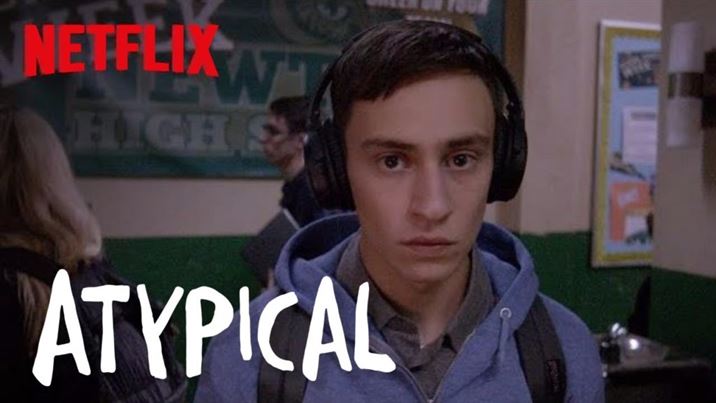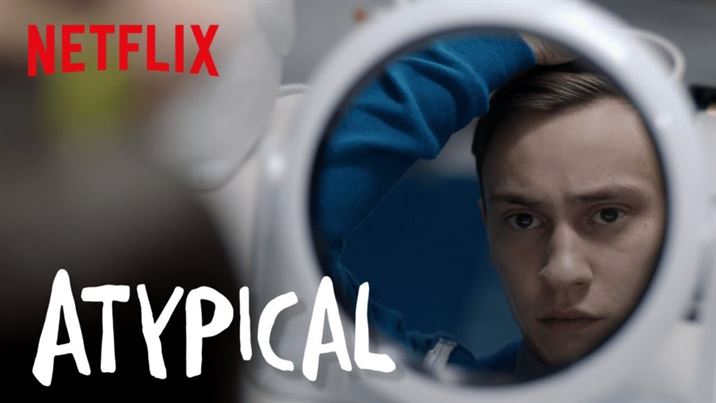The second season of Netflix’s “Atypical” is much less problematic than its first season, which debuted last year to a lot of of backlash due to the way its main character’s, high school student Sam Gardner, autism portrayed a stereotype as he searches for love and independence from his overbearing mother. The show’s sophomore season was definitely an improvement.
“Atypical’s” second season premiered earlier this month, picking up on Sam, played by Keir Gilchrist, during his senior year. The main focus this time is not finding love but figuring out what he wants to do after graduating.
He attends a peer group at his school for other teens on the spectrum. “Atypical’s” creator Robia Rashid does a better job this season in representing actual people with autism. All of the actors in this peer group are actually on the spectrum.
Along with this, Rashid included autistic author David Finch in the production of this season. This is something I hope to see continue if the show is renewed for another season. It is imperative to include people that can understand firsthand because it makes a major difference in how it is portrayed to audiences. It is hard to imagine doing an entire community justice without including them in it.
When watching “Atypical,” the audience experiences the way Sam functions with autism and how it impacts his family. He is portrayed to be on the high end of the spectrum, which is cliche considering most films or shows that have autistic characters do this.
Sam’s obsession with Antarctica and penguins make for another cliche component of autism in the media. Many people on the spectrum have unique interests that they know a lot about and this is often portrayed in media. Sam is also brutally honest with everyone and oblivious in almost every social situation. These together make him a character that the audience can find funny without him meaning to be, which only further encourages audience members to find aspects of autism funny.

“Atypical” centers on the life of autistic teen Sam Gardner. Photo courtesy of Netflix
Others around him, like his mother Elsa played by Jennifer Jason Leigh, treat him like a baby. She is far too overbearing and constantly doubts his ability to have relationships or other adult experiences.
A lot of season one featured outrageous situations, but I suppose it is because it is supposed to be a dramedy. In the second season, the audience is met with plots that are more thought out.
I believe the issues in season two that arise are more interesting than the first season. Episode six is a good example of this when Sam is stopped by police after wandering from his first sleepover. His anxiety is increased to the point where is he unresponsive to the officer and the officer takes this as a threat. Bringing awareness to how first responders are not properly trained to handle people with disorders was important.
In this episode, Sam’s parents Elsa and Doug, played by Michael Rapaport, meet up with the parents of a kid that bullied Sam. When the father of the kid defends his child’s actions by expressing his intolerance for dealing with people on the spectrum, Doug insists on leaving. Although it would have been nice to see Doug correct him, showing this type of ignorance was important to show it still happens.
Later in the season, Sam decides he is going to go to art school nearby. This strays from the typical representation of autistic people. Most times, we are met with the autistic person that is insanely good at science or math. This time, the character is extremely talented at something else for once.

Keir Gilchrist is Sam Gardner in “Atypical.” Photo courtesy of Netflix Photo credit: Netflix
I cannot speak for those with autism or those with autistic relatives, so I cannot say that the second season got it all right. However, I can see the effort to change within season two and that in itself is a great start to properly representing people on the autism spectrum.



